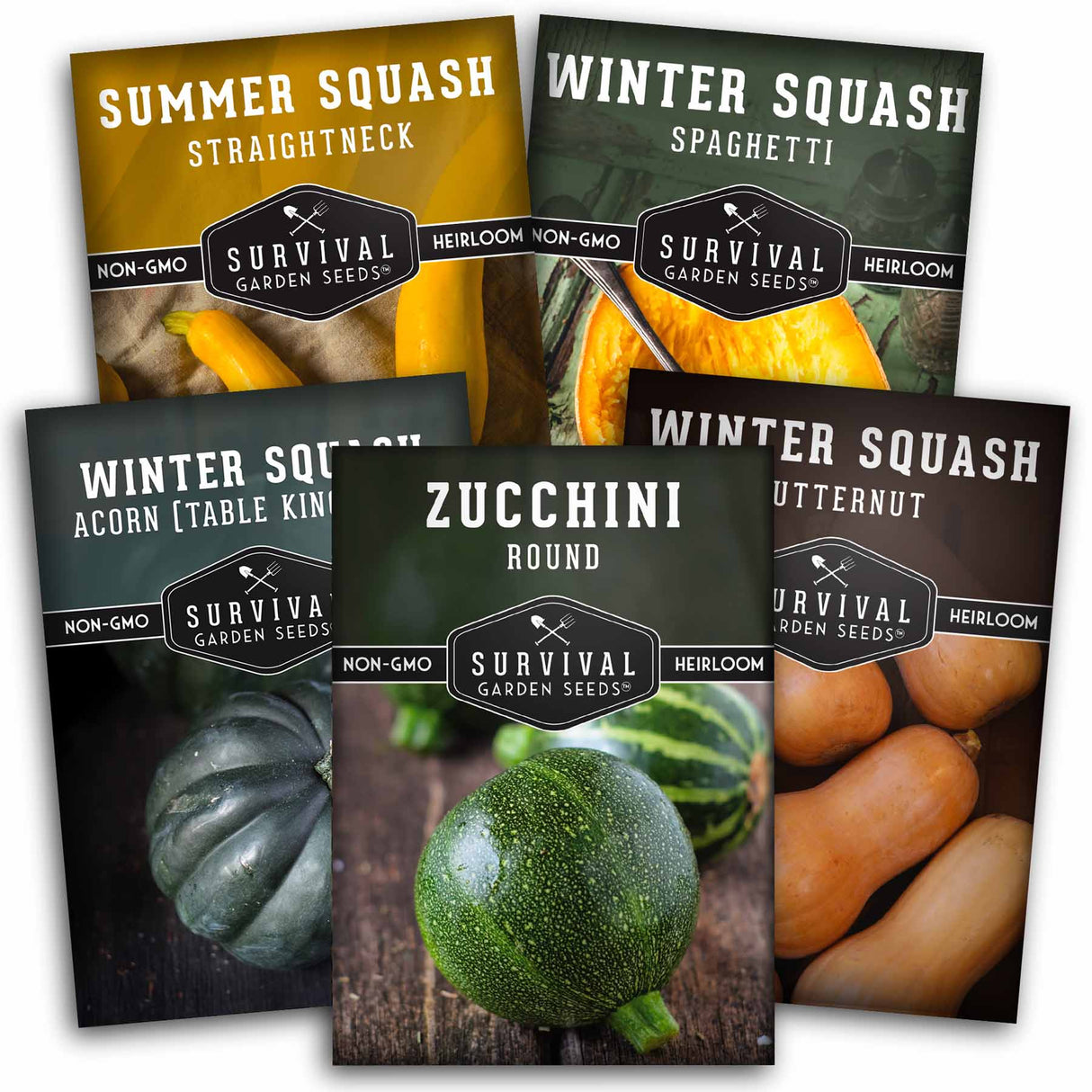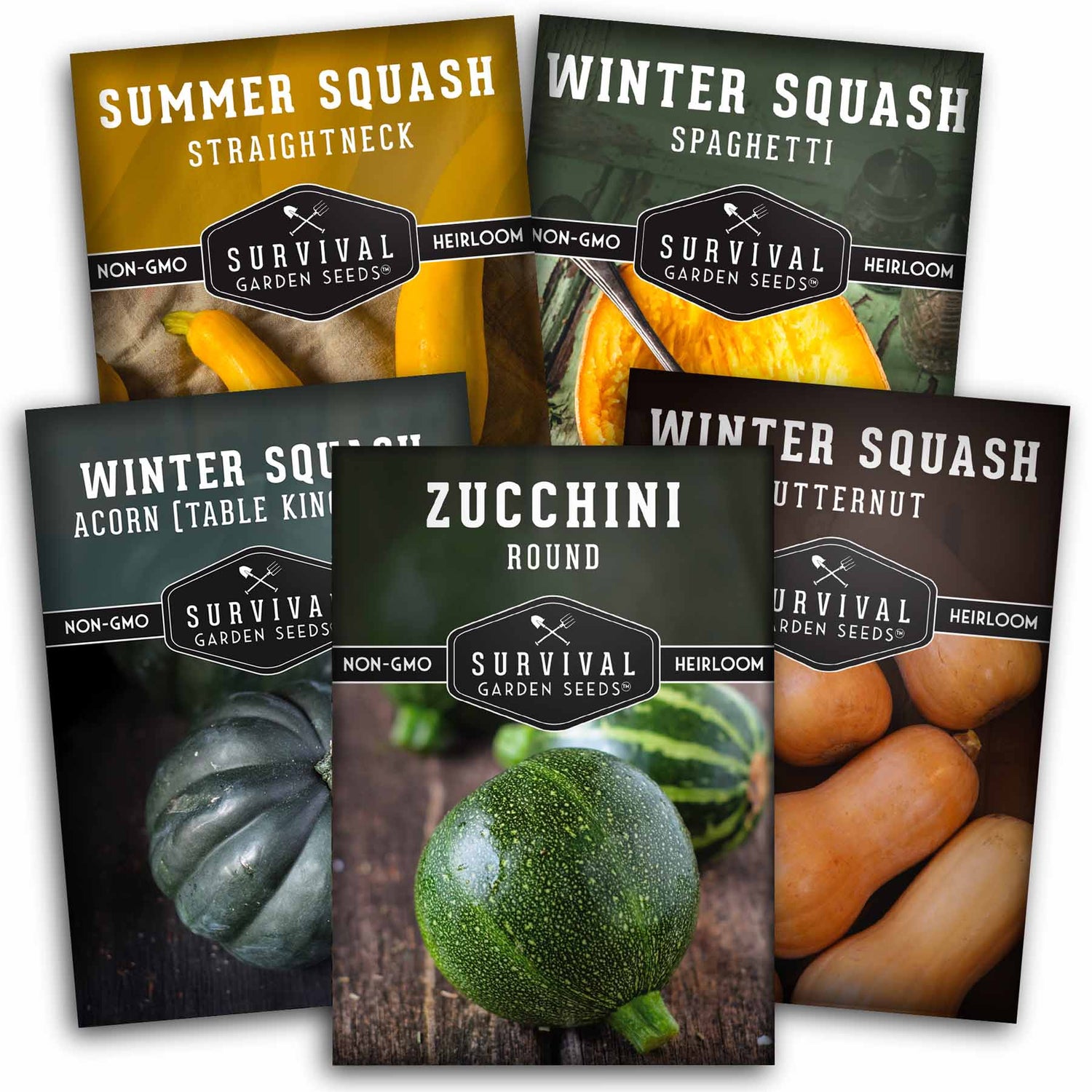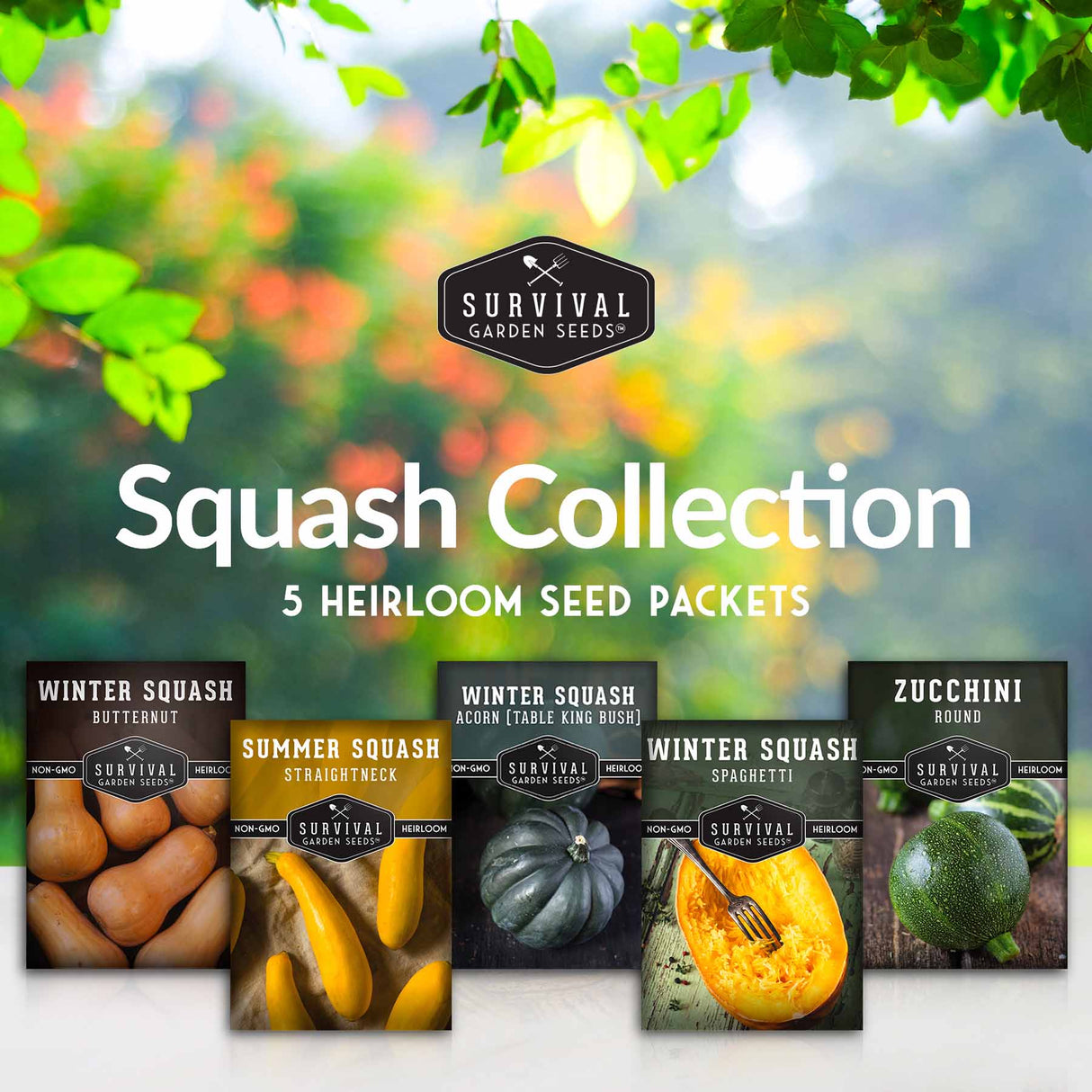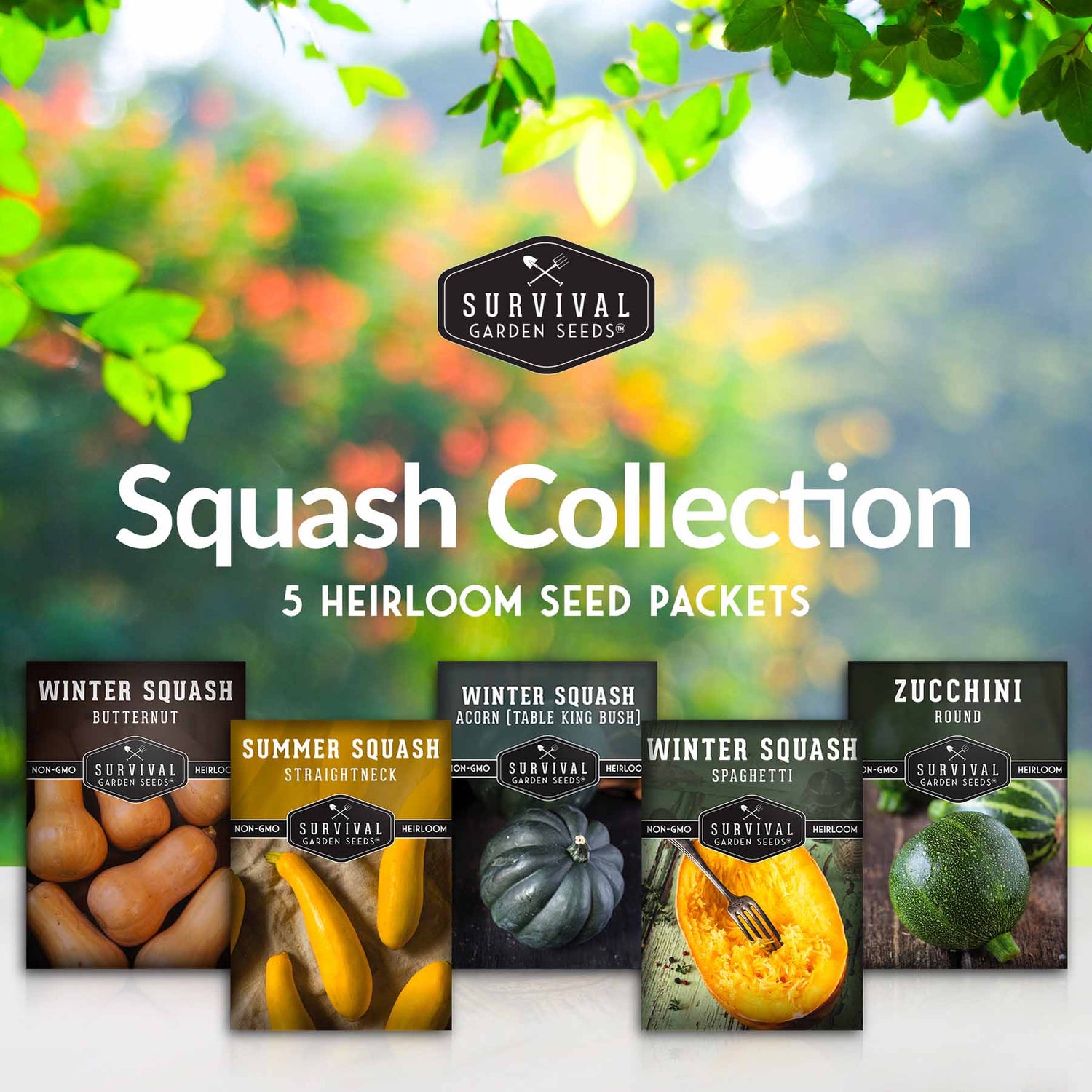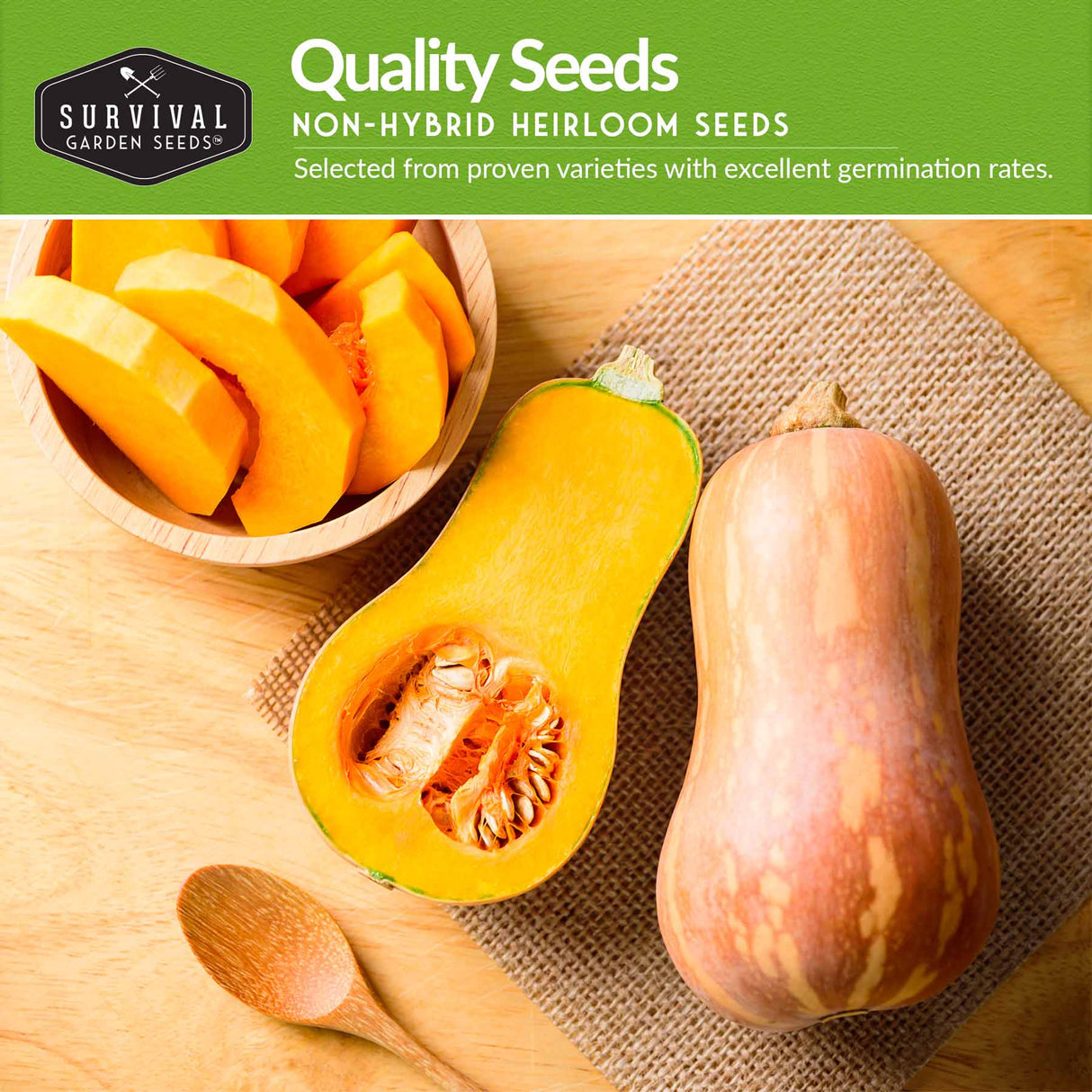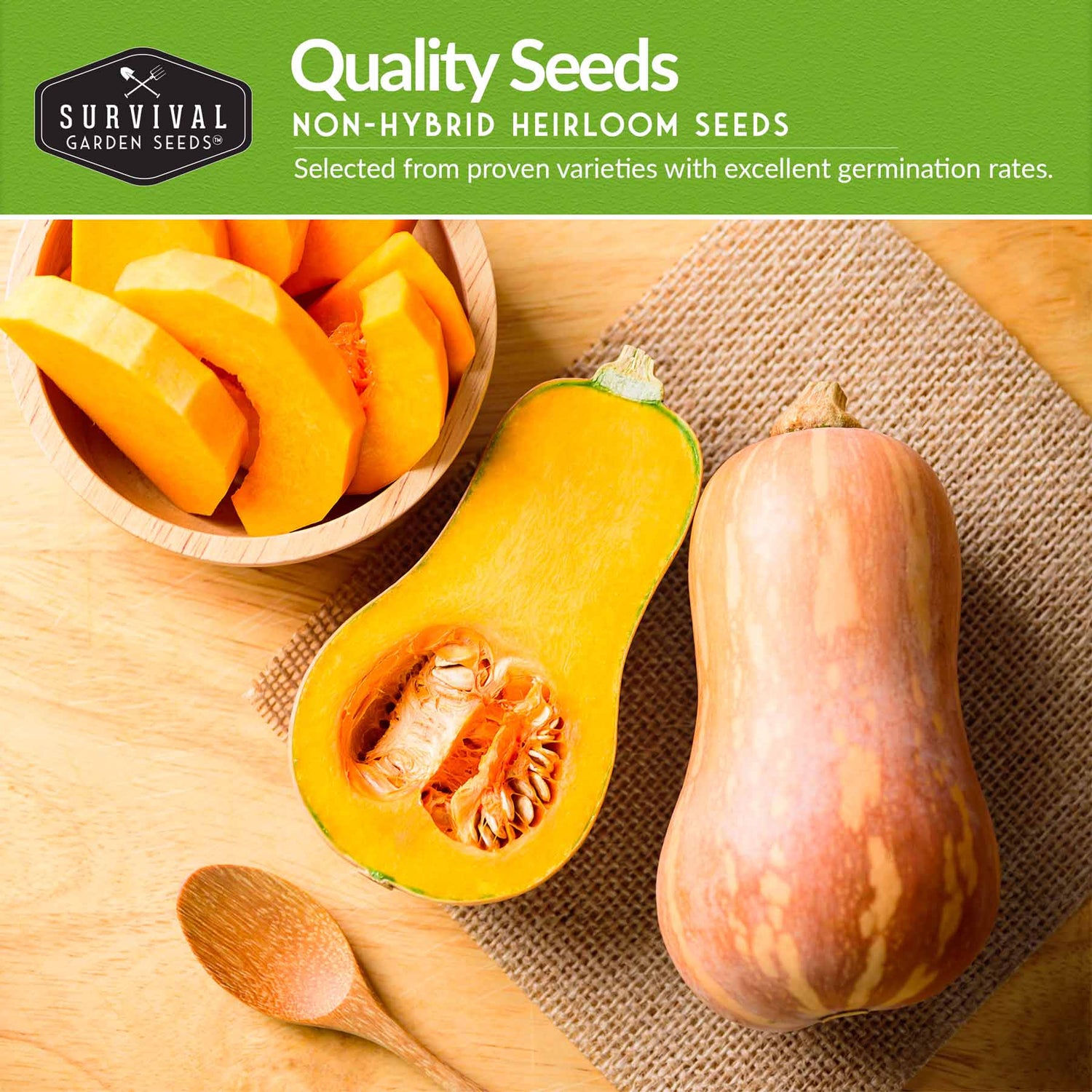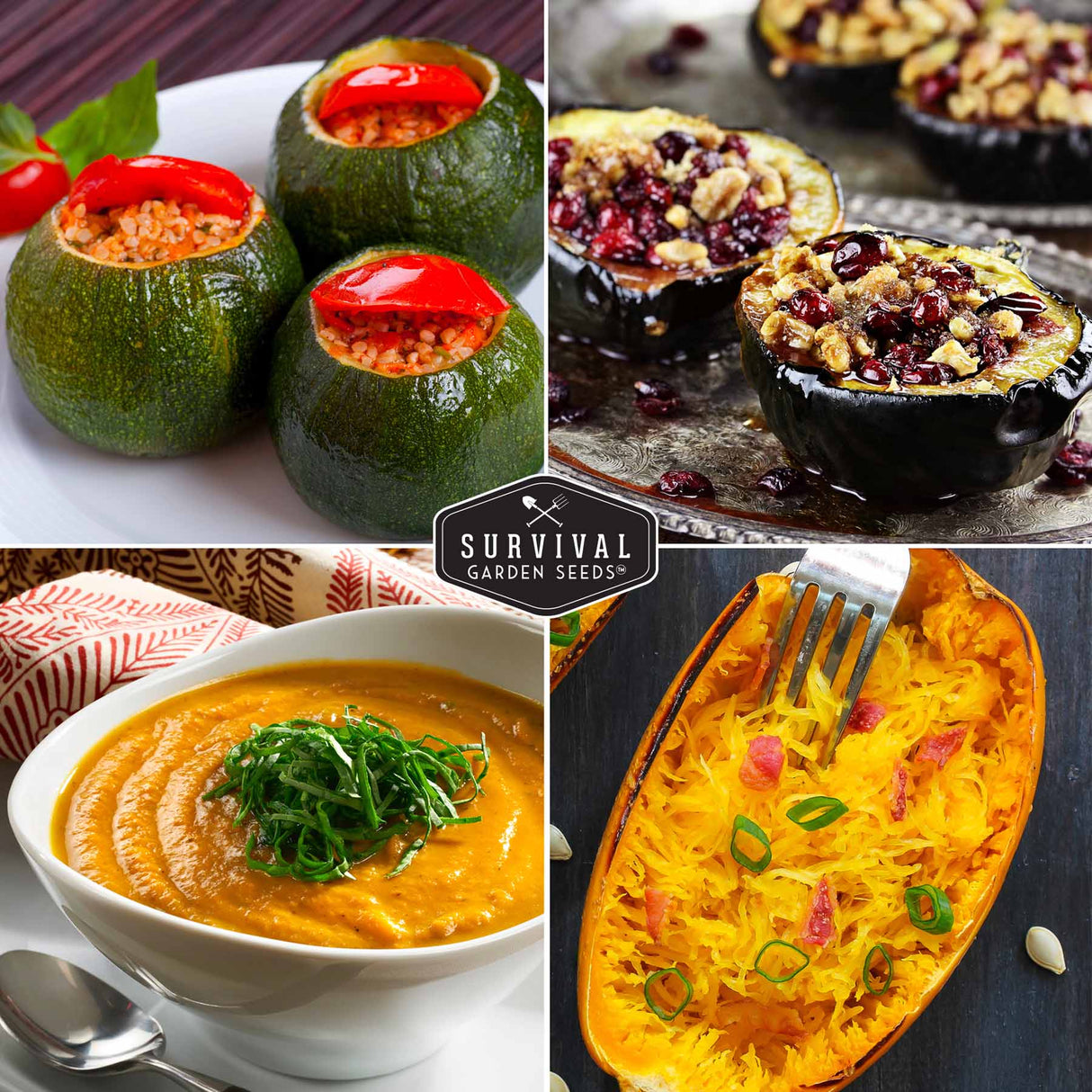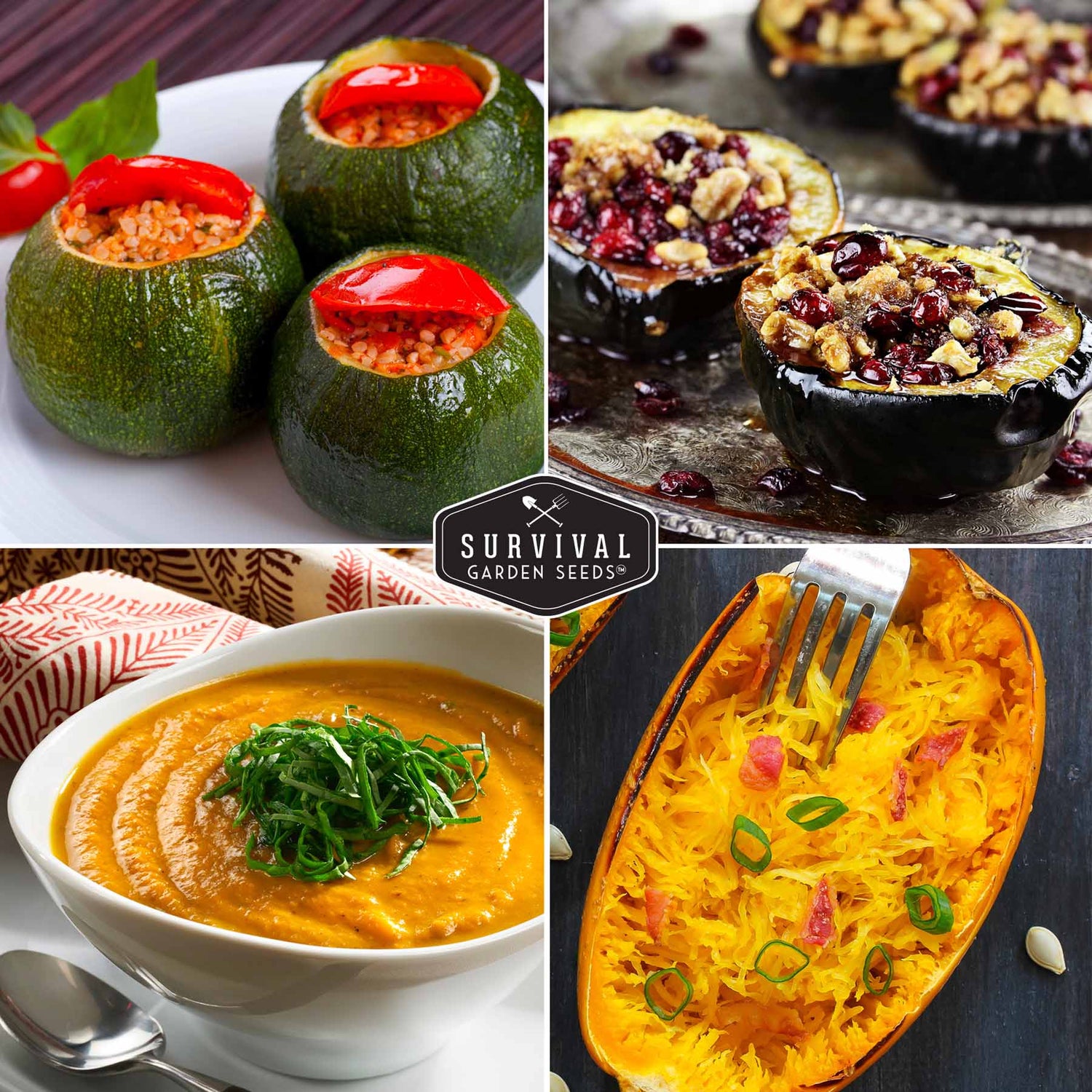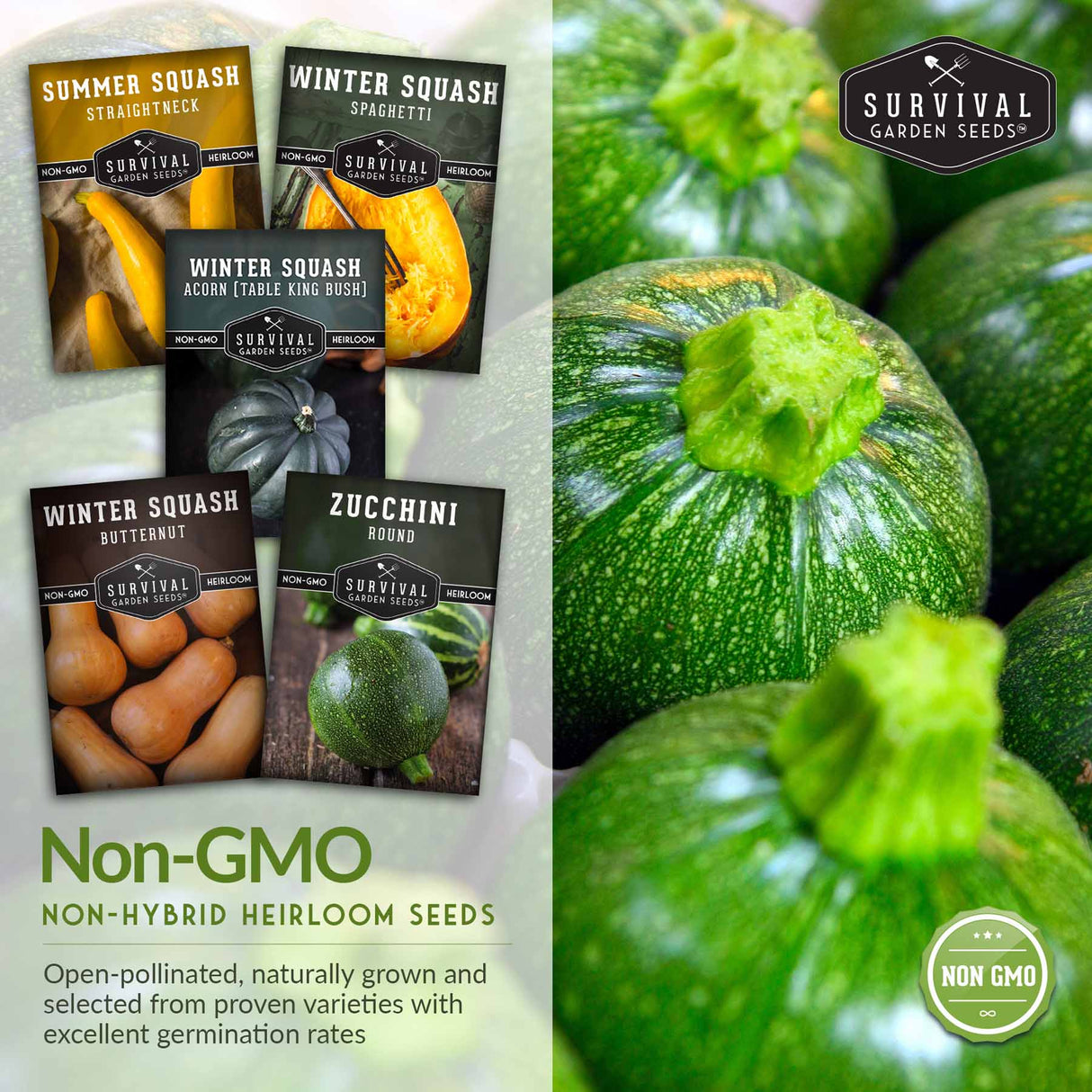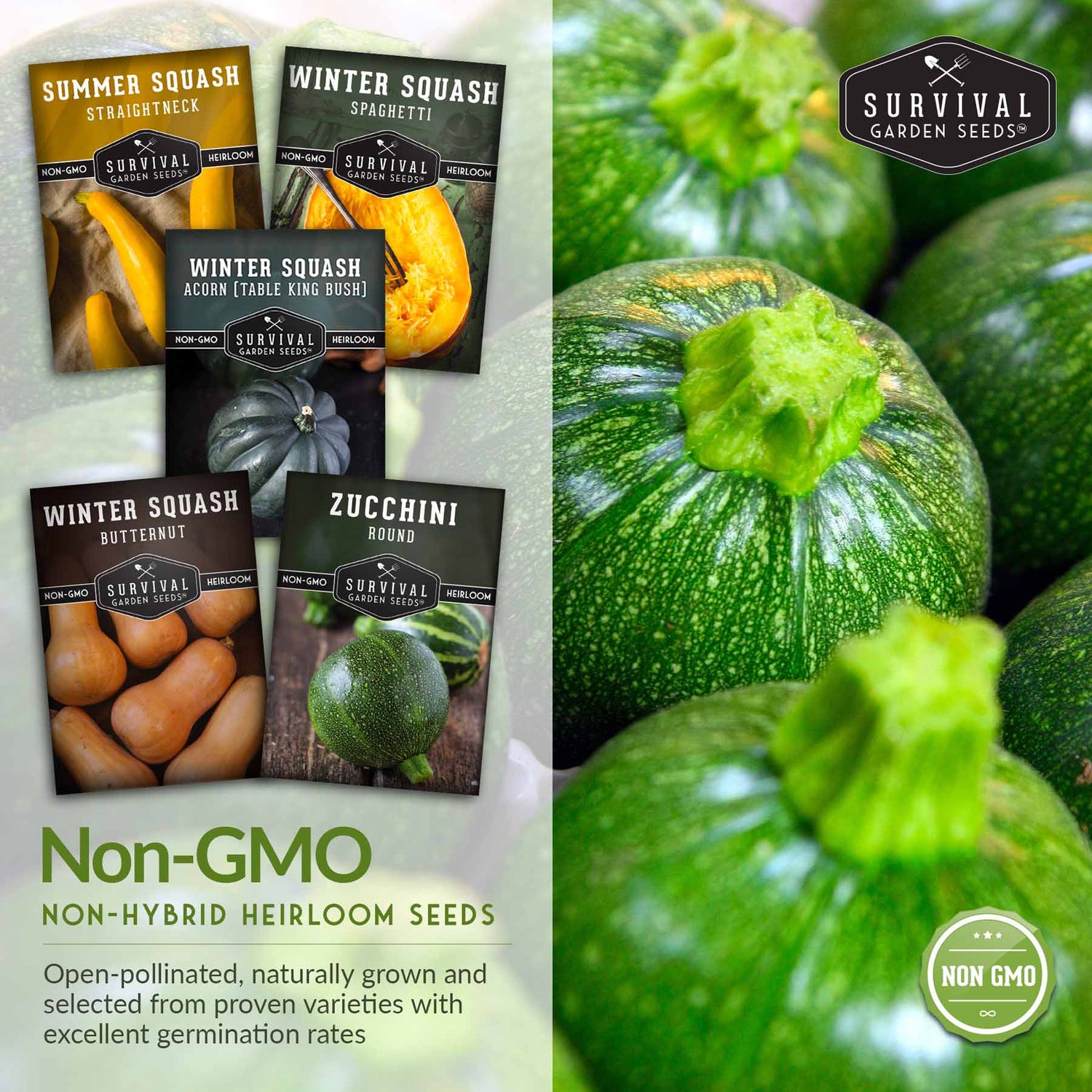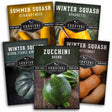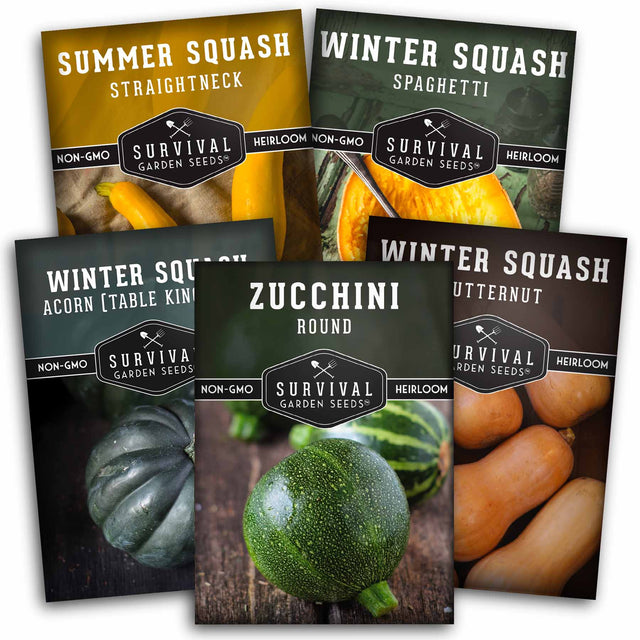Squash Seed Collection – Zucchini, Yellow Summer, Butternut, Spaghetti & Acorn Varieties for Productive Summer and Winter Harvests
Heirloom - Non-GMO - Reliable Germination
Squash Seed Collection – Zucchini, Yellow Summer, Butternut, Spaghetti & Acorn Varieties for Productive Summer and Winter Harvests is backordered and will ship as soon as it is back in stock.
Couldn't load pickup availability
Grow an abundant, season-spanning harvest with this Squash Seed Collection from Survival Garden Seeds. Featuring five productive squash varieties—round zucchini, straightneck yellow summer squash, butternut, spaghetti, and acorn—this mix brings together both summer and winter squash for versatile cooking and reliable yields. These full sun annuals thrive in warm weather and provide a steady supply of tender summer squash and long-storing winter squash for year-round meals.
Five Delicious and Dependable Squash Varieties:
- Round Zucchini (pkg. wt. 3.5g) produces compact, easy-to-grow plants that form small round fruits about 2–3 inches wide. With green or yellow skin and a mild flavor, they are excellent for sautéing, grilling, stuffing, or enjoying fresh.
- Straightneck Yellow Summer Squash (pkg. wt. 2g) offers bright yellow, elongated fruits on highly productive plants. Its mild flavor works well raw in salads or cooked in countless dishes. Flowers are also edible and make a delightful early-summer treat when fried.
- Spaghetti Squash (pkg. wt. 2g) is a nutritious winter squash known for its stringy, noodle-like texture. Mild in flavor and high in fiber, it serves as a low-carb alternative to traditional pasta, with fruits typically reaching 2–5 pounds.
- Butternut Squash (pkg. wt. 2g) features tan skin, a classic bell shape, and vibrant orange flesh with a sweet, nutty flavor. This dependable winter squash stores for months when properly cured and works well in both savory and sweet recipes.
- Table King Acorn Squash (pkg. wt. 5g) is a compact heirloom variety producing several dark green, ribbed fruits per plant. Known for its rich, sweet flesh and reliable vigor, it fits beautifully into gardens of any size and stores well after harvest.
Why Customers Love the Squash Seed Collection:
- Includes both summer and winter squash for extended harvest potential
- Offers mild, sweet, and nutty flavors suited for grilling, roasting, stuffing, baking, and more
- Productive varieties that grow well in full sun and warm weather
- Winter squash options store well for long-term use
- Suitable for a wide range of garden sizes, from raised beds to larger plots
How to Grow:
Sow squash seeds outdoors after the last frost when soil has warmed thoroughly. Plant in full sun with rich, well-drained soil. Provide ample space for vining winter squash varieties or support if training on a trellis. Keep soil consistently moist, especially during flowering and fruit development. Harvest summer squash while young and tender; allow winter squash to mature fully on the vine before curing.
Harvest & Use:
Use summer squash for sautéing, grilling, spiralizing, stuffing, or adding freshness to salads. Enjoy winter squash roasted, mashed, baked, or added to soups and casseroles. Butternut and acorn squash store for months when cured, while spaghetti squash offers a unique noodle-like texture ideal for low-carb meals.
Heirloom Garden Seeds
All of our seeds are open-pollinated, non-GMO, heirloom varieties with tested germination rates
Payment & Security
Payment methods
Your payment information is processed securely. We do not store credit card details nor have access to your credit card information.
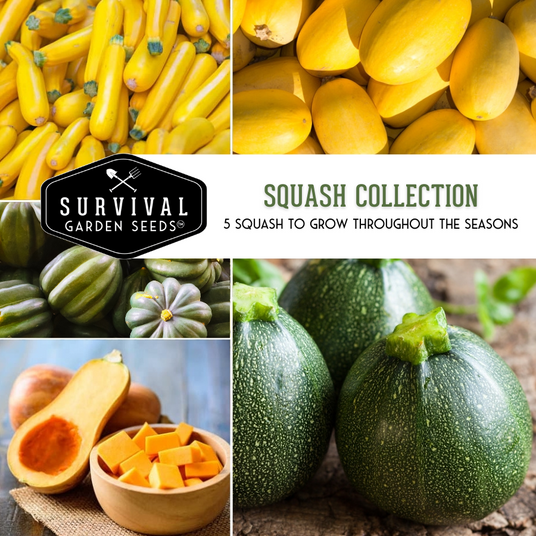
Summer & Winter Squash
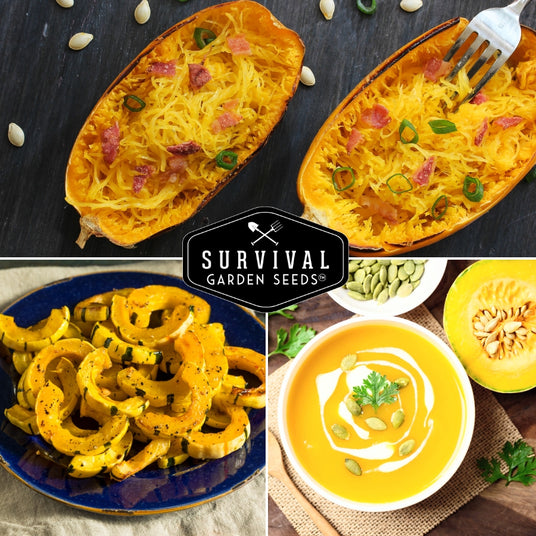
Long Growing Season
Why Choose Survival Garden Seeds
At Survival Garden Seeds, we believe in preparing today for tomorrow’s peace of mind. That’s why we offer only heirloom, non-GMO, and untreated seeds you can trust to nourish your family and support a sustainable lifestyle. As a family-owned American company, we’re committed to providing seeds that grow strong and true—helping you cultivate health, resilience, and beauty in your garden.
Frequently Asked Questions
Are your seeds heirloom and open-pollinated?
Are your seeds heirloom and open-pollinated?
Yes. All of our seeds are heirloom, open-pollinated varieties, which means they can produce seeds that grow true to type and are suitable for seed saving.
You can learn more about open-pollinated, heirloom, and non-GMO seeds in our Survival Garden Training blog.
Are your seeds non-GMO?
Are your seeds non-GMO?
Yes. All Survival Garden Seeds are 100% non-GMO. Our seeds are open-pollinated heirloom varieties and are never genetically modified.
Are your seeds treated with chemicals?
Are your seeds treated with chemicals?
No. Our seeds are completely untreated and free from chemical coatings, fungicides, or synthetic treatments.
How do I know my seeds are fresh?
How do I know my seeds are fresh?
Every seed packet includes a packed-for date, and we germination-test each seed lot before packaging to ensure high viability.
What is the shelf life of your seeds?
What is the shelf life of your seeds?
Most seeds remain viable for 3 to 5 years or longer when stored properly in a cool, dry place away from light and moisture.
In what USDA hardiness zones can I grow your seeds?
In what USDA hardiness zones can I grow your seeds?
Our varieties are selected to grow successfully across USDA Hardiness Zones 3 through 10. Each packet includes variety-specific planting guidance and germination tips.

